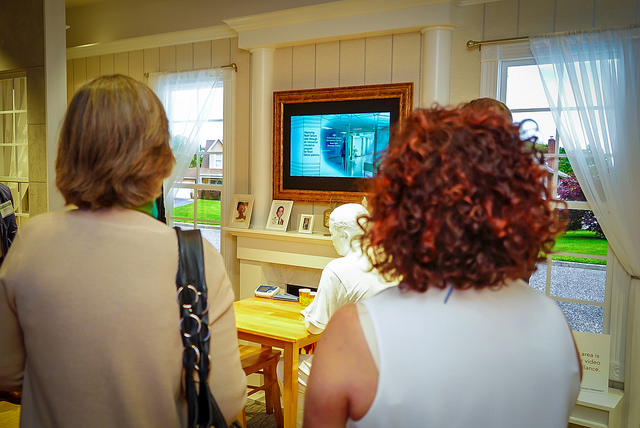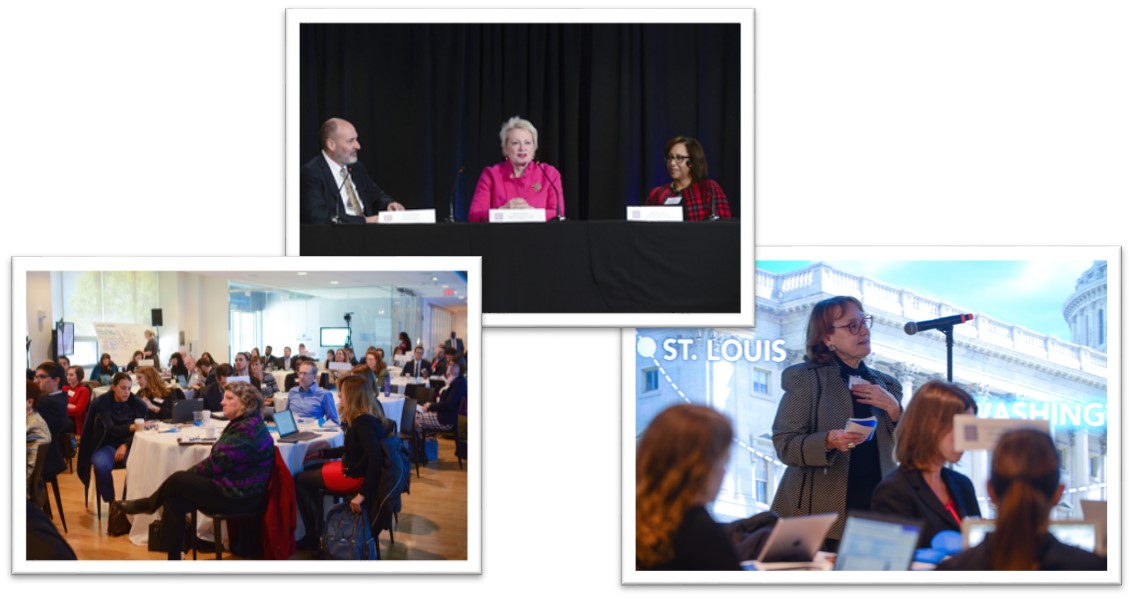In recognition of National Healthcare Decisions Day on April 16, Christina Kerby, a senior communications consultant with Kaiser Permanente’s Care Management Institute, spoke with people who have recently participated in Life Care Planning along with their facilitators about why these conversations are important for them and their families.
Janie’s Story
Janie is a Kaiser Permanente employee in Northern California
I came home five years ago and discovered that my husband had passed away. My husband and I had shared our desires with each other so since he is no longer with me I felt it very important to let my daughter know what I desired in terms of my health. My daughter and I received an email regarding the Advance Care Planning Class held here at Kaiser Permanente. I filled out the advance directive and am very confident that my daughter will follow it to the letter. Now that everything has been discussed and final arrangements have been put in place, it will help to make the process easier.
Advance Care Planning is the way to go so that my loved ones won’t be burdened wondering what to do and how to handle my final transition. I have expressed how they should handle everything. To have this document in place, and my mortuary fees paid in full makes me feel that I have taken a lot of unnecessary stress off of my family.
Meri’s Story
Meri is a senior consultant with the Care Management Institute and a Life Care Planning facilitator
Advance care planning is an important part of wellness, and we see it as a preventive service, just like mammography screening. We offer life care planning workshops for our employees because we feel that all adults regardless of age can benefit from thinking about and discussing what their own health care decisions would be if they are unable to speak for themselves due to a serious and/or sudden health crisis. It’s never too early to start having these important conversations.
I remember Janie and her daughter from the workshop. Janie told us she is a “planner” type of a person. So it makes sense that she would want to plan the end of her life as well! Janie, by having these conversations with her daughter and family, will help them to be prepared and minimize potential uncertainty, guilt and possible conflict between loved ones when the time comes.
Facilitating these workshops brings me a sense of pride that we are helping KP employees begin to think about how they want to live at the end of their lives, and share their wishes with their loved ones. We encourage everyone to choose a health care agent who would speak for you if you become unable to communicate your wishes.
Matt’s Story
Matt is a retired military veteran married to a Kaiser Permanente member in Colorado
My wife is starting to have some memory problems. We were in the Memory Clinic here in Colorado, and Kay (our social worker) asked if we would be interested in Life Care Planning, and we said yes. We both needed to update our wills and we considered a living will part of that. It was a very convenient time to go through this.
The process was a little awkward at first because of the types of questions you have to think about. What creature comforts do you want at the end of life? How long do you want to be kept alive if you’re incapacitated? My wife and I travel a lot. What happens if we’re both in an accident? With Kay’s background and experience she was able to lead us in how to think about and anticipate those things.
No one wants to think about dying or being incapacitated. But we’ve had other family members go through this and it helped us think about our own wishes. I had a grandfather live for 10 years after a stroke that left him partially paralyzed. We all took turns taking care of him, and it was a strain on the family. In my wife’s case, when her parents became ill one person handled all the decisions and everyone else felt left out. My wife and I talked about how she would want to be taken care of. I’m an only child, and with my wife’s deteriorating health and memory, I will need to find someone else to be my health care agent.
It’s something that’s hard to get people to think about, especially younger people. In our case we’re in our sixties and early 70’s, but it’s something that’s on our mind.
Kay’s Story
Kay is a Licensed Clinical Social Worker in the Kaiser Permanente Memory Clinic in Colorado and a First Steps Facilitator and Instructor for Life Care Planning
I worked in hospice for 8 and a half years as a social worker before coming to Kaiser Permanente. One of the things that I observed countless times in my career in hospice was the difference that having an advance directive in place made between a patient having a “good death,” or a very “difficult death.” If there was no directive in place, and/or if there had never been any end of life discussions between the patient and their family members, things could become intense. Families often felt like they had to “play God” and guess whether or not their loved one would want interventions such as feeding tubes, ventilators and other aggressive measures during times of crisis. It was really difficult on so many levels for everyone involved in that process.
I’m a huge advocate of advance directives. In our Memory Clinic, we get to provide a very unique service because many of the patients that we work with are on the brink of lacking capacity to complete their advance directive, and we are able to assist them with that process in a timely manner. That feels great from my end, and is a huge gift to their families, as well.”
For resources and information about Life Care Planning, visit www.kp.org/advancecareplanning.


